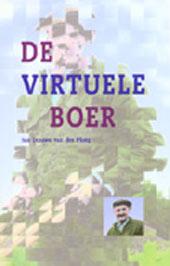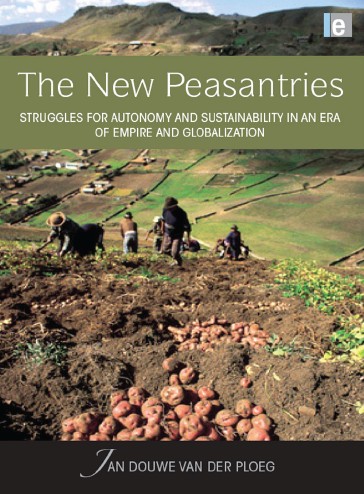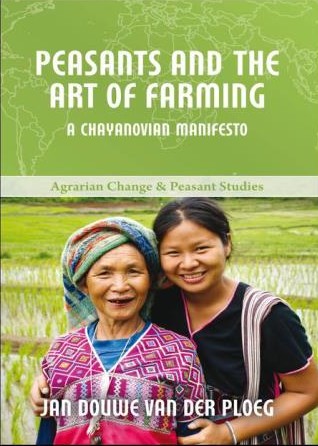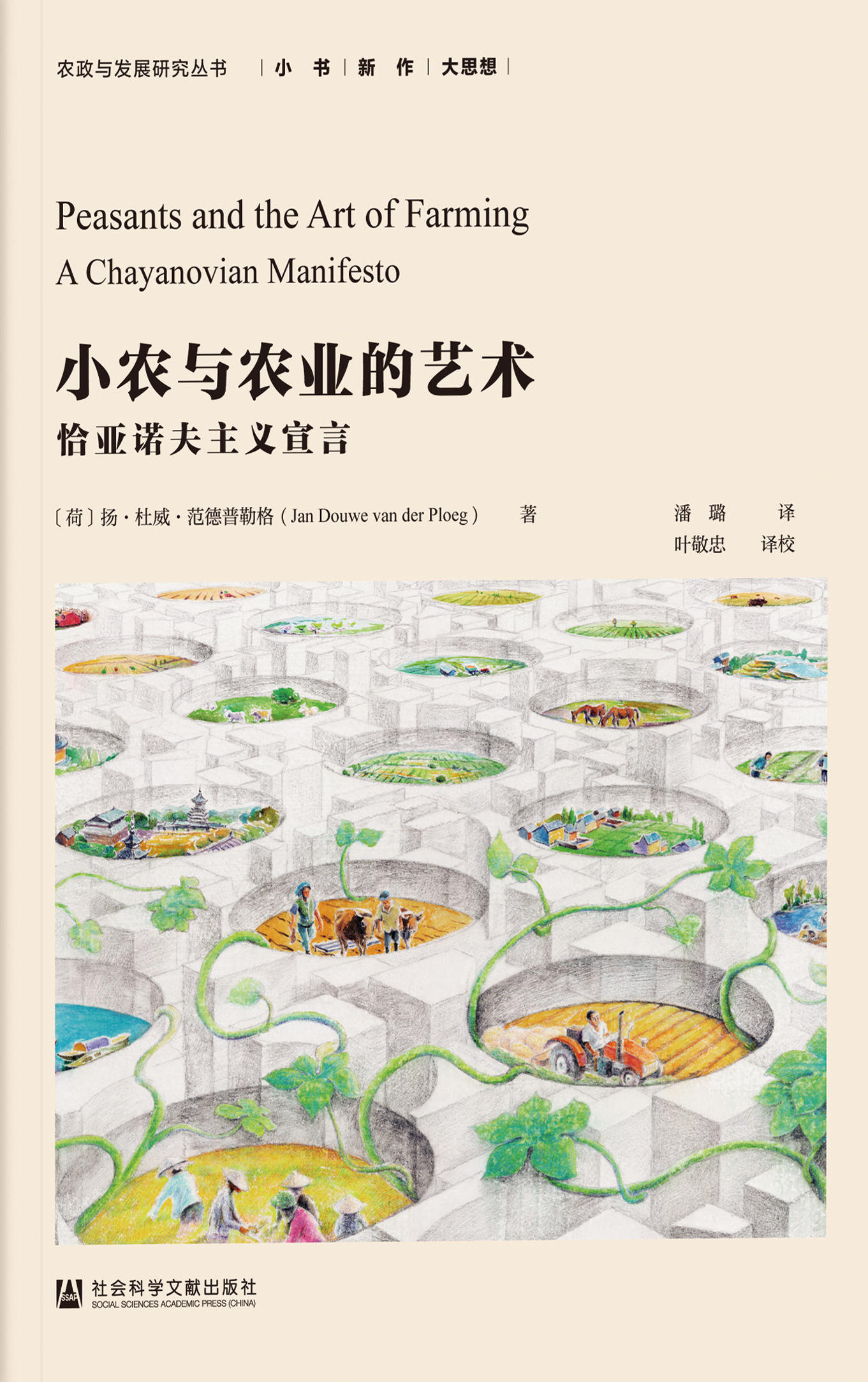Home · THE VIRTUAL FARMER
the book: the virtual farmer
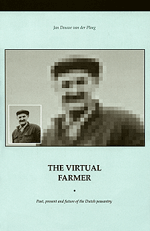
Jan Douwe van der Ploeg
The first storyline concerns agriculture as a complex practice - as a carefully coordinated unit comprising (i) the mobilisation of resources, (ii) the conversion of resources into end products, and (iii) the sale of these end products.
The mobilisation of resources is discussed in Chapter 2 in particular. There I point out how, via a lengthy and complex emancipation process, the mobilisation of resources (land, capital, labour, knowledge, water, tools, etc.) is actively withdrawn from the influence of markets. This distantiation from markets at the input side of the farm provided the basis for the success of Dutch agriculture. Creating a certain distance between farm and markets turned out to be one of the hidden ingredients explaining the success of Dutch agriculture. It is also one of the ingredients that is systematically ignored in the currently predominant description of 'the virtual farmer'. Farmers act as Homo economicus within the image produced by the contemporary agricultural knowledge network, as entrepreneurs integrating their farm fully into markets and therefore following and implementing the logic of the market: as puppets on a string.
Dutch farmers are, I will argue in this book, not so much the entrepreneurs they should be according to the agricultural expert system, but peasants: producers who, for the sake of their own survival, actively withdraw the processes of farm management and farm development from the logic of markets that seem to ignore their survival.
"We have never been modern", according to Latour in a well-known essay (1993). In its footsteps one could claim: "Dutch farmers have never been entrepreneurs" (which in fact has already been raised by Constandse in 1964). They are peasants, and precisely because they are peasants they have proved to be so successful through the ages. The fact that this is also extremely topical and relevant nowadays is discussed in Chapter 5.
The transformation or conversion of resources into end products is discussed at length in Chapter 4. This transformation (for example from grass and cows into milk and meat) is conceptualised in the agricultural expert system as regulated by production functions: a fixed relationship between inputs (grass and cows) and outputs (milk and meat). It is assumed that new, more productive and/or more sustainable production functions can only be created after technological breakthroughs.
In contrast to this thesis, I want to develop another image. Indeed, there are regularities and patterns of coherence. Unmistakably, the relation between inputs and outputs (the I/O relation) displays a certain range and contains a certain, as yet uncrossable, frontier function (the most efficient I/O relation) in certain, temporally and spatially restricted situations. But what is important here is that these patterns or regularities are a product, a result of the labour process in agriculture. Furthermore, I regard the labour process as locus of co-production, of the continuous encounter between, and mutual transformation of, the social and the natural. Precisely because the results of this co-production are rooted in, and arise from, the labour process, it will always involve extremely variable I/O relations. New production functions are constantly created in and through the process of farm labour: new patterns of coherence that correspond closely with farmers" own interests, perspectives, insights, and knowledge.
In previous studies of farming styles, researchers concentrated initially on the above-mentioned dimensions: the conversion and mobilisation of resources. This initially limited approach was later broadened to the commercialisation of products and services. The focus shifted to the specific circuits connecting production and consumption. These are understood as ordering principles, as essential types of interlocking, and therefore as crucial parts of socio-technical networks. I will return to these new insights in Chapter 9, where new development opportunities for Dutch agriculture will be discussed.
What is important in this first storyline is that the interconnected domains of mobilisation, conversion, and sale contain considerable variability - each separately, but above all collectively. They are malleable, flexible, changeable. The resulting variability cannot be understood as a "fixed" range: it is constantly enlarged in the practice of farming - that is, by farmers" innovative capacity.
Similarly, the potential variability is constantly restricted, if not reduced. If two keywords describe agricultural history and its development of production capacity, they are variation and selection. On the one hand, there is a constant search for new patterns, and for new combinations, to further increase the already available variation. On the other hand, some patterns, and some combinations, demonstrate that they are more successful than others, while others prove unsuitable in the light of changing social and ecological conditions. Thus selection appears, while the provisional end result of the selection is the starting point for the search for and creation of new variation.
Farming is like "a dance through time" time and again variation and selection result in new socio-technical networks, new types and connections. While these new expressions emerge, others degrade and disappear - sometimes stealthily, almost unnoticed, at other times abruptly.
This brings us to the second storyline. It concerns the heterogeneity of farming as the (temporally and spatially confined) expression of this "dance through time". In Chapter 3 of this book, I will discuss in detail the farming styles that can be distinguished in contemporary Frisian dairy farming. I will try in particular to describe these styles as projects, as "self-reflective strategies for patterning the network of the social" and, hence, as part of a more comprehensive socio-technical network.
The remainder of the book builds upon this, particularly Chapters 6 and 7, which discuss selection, and Chapter 9 in which variation is discussed. More precisely, in Chapters 6 and 7, I analyse the interaction between the development opportunities inherent in various farming styles and the dominant agro-political project - that is, the process of modernising agriculture - while the interaction with a new agro-political project, in which rural development has a central role, is analysed in Chapter 9. Chapter 8 forms a link: there the central theme is the extensive erosion of trust, the essential ingredient in the functioning of expert systems.
The third storyline can be summarised as a systematic critique of various forms of determinism: of technological determinism (in Chapter 4, inter alia, where the doctrine of production functions is discussed); of economic determinism (in Chapter 5); but especially of what is called structural determinism, which has overrun the social sciences (including rural sociology). Chapters 6 and 7, which discuss modernisation as "the unfolding of structural patterns and relations", can be understood as a critique of structural determinism. There the agricultural knowledge system, the expert system that represents, propagates, and realises this structuralist notion like no other, is discussed at length.
The fourth storyline is the obvious counterpart of the third: it entails a search for a more adequate concept of structure. The foundations for such an alternative concept are discussed in the Chapter 1, where especially the interrelations between past, present and future are rethought. Throughout the rest of the book, I will test the notions raised in this first chapter, to arrive at a conclusion in the final chapter (Chapter 10). I will also summarise the critique of the contemporary expert system in Chapter 10. Chapter 9 forms an important prelude to this, which brings us to the fifth and final storyline. Chapter 9 concerns new development opportunities that reach beyond the current misery. In the discussion of these opportunities, I use "rural development" as the connecting concept. Chapter 9, the "battle for the future", is also concerned with the social and political struggle that was waged in the 1990s over the realisation of new development opportunities.
NEW
Jan Douwe van der Ploeg
Formerly Professor and Chair of Rural Sociology and Emeritus professor of Transition Studies at Wageningen University (WUR), the Netherlands and Adjunct Professor of Rural Sociology at the College of Humanities and Development Studies (COHD) of China Agricultural University (CAU) in Beijing, China.
e-mail: clic here
Jan Douwe van der Ploeg
Formerly Professor and Chair of Rural Sociology and Emeritus professor of Transition Studies at Wageningen University (WUR), the Netherlands and Adjunct Professor of Rural Sociology at the College of Humanities and Development Studies (COHD) of China Agricultural University (CAU) in Beijing, China.
e-mail: clic here


